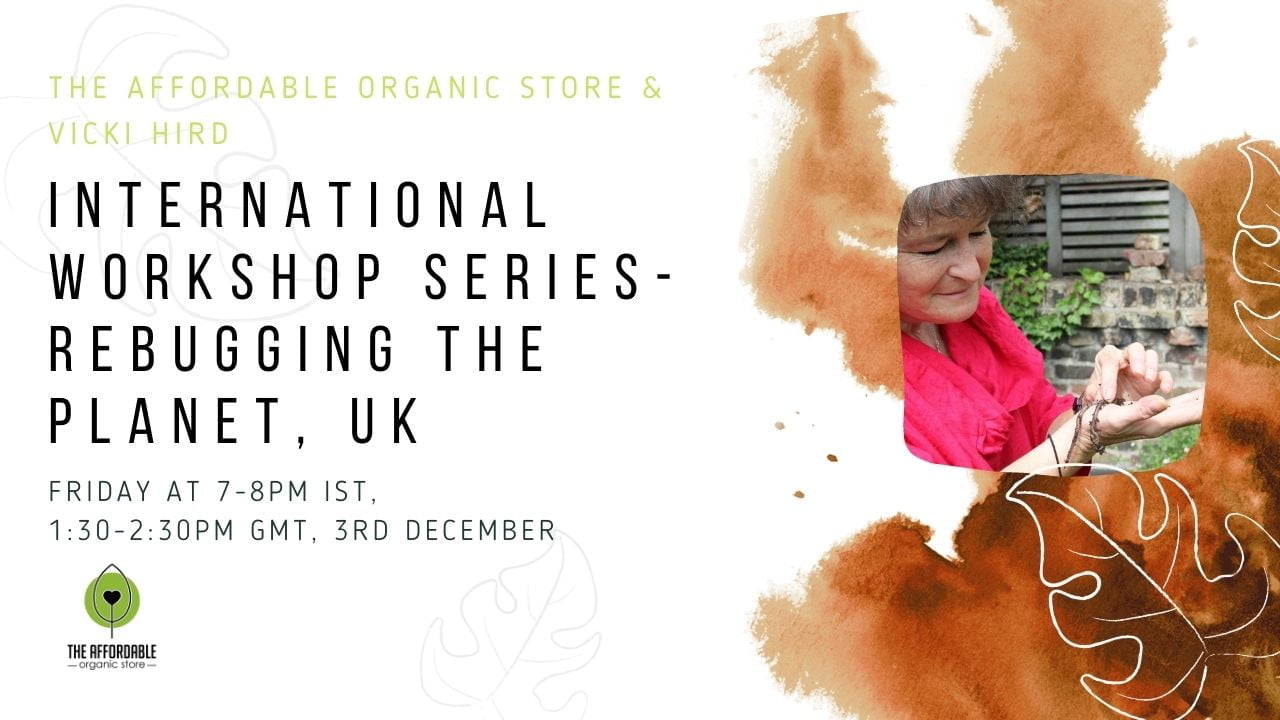We all know that where there are plants there are bugs too. These bugs have always been treated as a threat and hence we use insecticides and pesticides to get rid of them. We also use some diy hacks to ward them away from our plants and homes. But have you ever thought that bugs are useful to us as well?
Well, without insects/bugs, our lives would be vastly different. Insects pollinate many of our fruits, flowers, and vegetables. We would not have much of the produce that we enjoy and rely on without the pollinating services of insects, not to mention honey, beeswax, silk, and other useful products that bugs provide. Bugs are important because of their diversity, ecological role, and influence on agriculture, human health, and natural resources. They create the biological foundation for all terrestrial ecosystems.
To learn more and understand it better, watch this workshop on “Rebugging the Planet” with our speaker Vicki Hird from the UK. She is an experienced and award-winning environmental campaigner, researcher, writer, and strategist working mainly in the food, farming, and environmental policy arenas and the author of the book “Rebugging the Planet”. She has explained to us why bugs are important to us and how we can help them grow. For more info, you can read her book “Rebugging the Planet” here https://amzn.to/3HKSfbq

